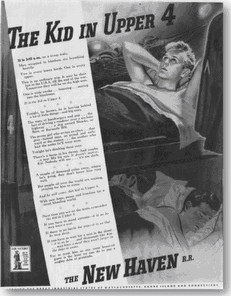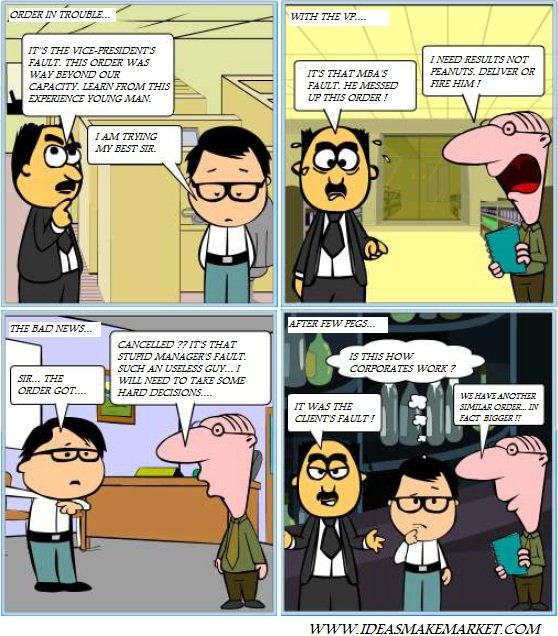
Then, the hub bub died down. New Haven‘s bad service continued. Consumers learned that taking a train ride on New Haven wasn’t such a great experience. And the railroad went under.
It just goes to show that great advertising can stimulate trial, but it certainly can’t generate repeat purchases if the product is not worthy.If the product is a dog, it’s a dog.
So, beware of all the cause marketing going on these days. Make sure that you’re buying for all the right reasons.
P.S. If you are curious what the ad said, here’s the copy:
It is 3:42 a.m. on a troop train.
Two in every lower berth. One in every upper.
This is no ordinary trip.
Tomorrow they will be on the high seas.
One is wide awake … listening … staring into the blackness.
It is the kid in Upper 4.
Tonight, he knows, he is leaving behind a lot of little things – and big ones.
The taste of hamburgers and pop …
the feel of driving a roadster over a six-lane highway…
a dog named Shucks, or Spot, or Barnacle Bill.
The pretty girl who writes so often …
that gray-haired man, so proud and awkward at the station …
the mother who knit the socks he’ll wear soon.
Tonight he’s thinking them over.
There’s a lump in his throat.
And maybe – a tear fills his eye.
It doesn’t matter, Kid.
Nobody will see … it’s too dark.
A couple of thousand miles away, where he’s going,
they don’t know him very well.
But people all over the world are waiting, praying for him to come.
And he will come, this kid in Upper 4.
With new hope, peace and freedom for a tired, bleeding world.
Next time you are on the train, remember the kid in Upper 4.
If you have to stand enroute – it is so he may have a seat.
If there is no berth for you – it is so that he may sleep.
If you have to wait for a seat in the diner –
it is so he … and thousands like him …
may have a meal they won’t forget in the days to come.
For to treat him as our most honored guest
is the least we can do to pay a mighty debt of gratitude.
The New Haven R.R.
You might like reading:

IIM Jammu Final Placements 2019-21: Average Salary of 10.34 Lacs
With over 100 recruiters participating in the recruitment drive, the placement scenario at IIM Jammu has been on the rise. IIM Jammu has seen new opportunities come its way as its students have secured excellent roles in domains like Analytics, Consulting, and Strategy in addition to roles in Marketing, Finance, and Operations. IIM Jammu continues to create a strong presence […]

IMM Comics: The Blame Game !
Whenever any order gets messed up in a firm, the blame game begins with everyone accusing the other for the inauspicious event. Does it happen in your company? IMM comics presents a small satire on the issue! Tags: job satisfaction order organisation































